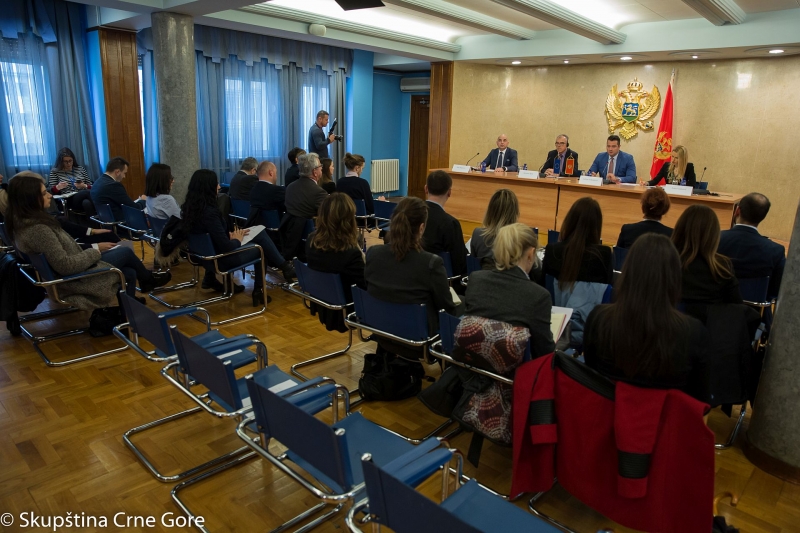The public debate on “Montenegro and the EU, Chapter 27: Environment and climate change” was marked by the discussion on previous results, achieved within the said negotiation chapter and willingness of Montenegro to provide the most favourable conditions for its citizens during its negotiations with the EU. Within the constructive dialogue of the interested public with the representatives of the state institutions and the EU, they also discussed key challenges and the activities required in order to reach the desired standard.
In his introductory speech, Mr Adrijan Vuksanović, Chairperson of the Committee on European Integration, emphasised that the goal of organising a public debate was to hear suggestions and comments of the public with regard to one of the most significant chapters, and that, in accordance with the possibilities, they should be taken into account when considering the negotiation position at the upcoming Committee meeting.
Mr Hermann Spitz, Head of Cooperation Section at the EU Delegation to Montenegro, talked about how the EU saw the situation in Montenegro with regard to the environment. In his address to the attendees, Mr Spitz emphasised the need for the issue of the environment to be addressed by the entire society, because a healthy environment ensures the health of its citizens, and sustainable development ensures long-term benefits for all.
Mr Saša Radulović, State Secretary of the Ministry of Sustainable Development and Tourism and negotiator for the said chapter, and Ms Ivana Vojinović, Head of the Working Group for Chapter 27, gave their view of what had been achieved while meeting the obligations in this field. The funds for infrastructure projects in this field are over one billion Euro, and they include action by stakeholders at the state and local levels on issues relating to air quality, climate change, waste management, water management, environmental protection, industrial pollution, chemicals, noise, and civil protection.
During the discussion, the attendees inquired about air quality assessment in Montenegro, main waste water and waste management projects, and incident control that could contribute to sea pollution in Boka Bay, and commented on the obligation of creation of the financial projection for the accession process, climate change, use of renewable energy sources, and closing benchmarks.
It was concluded at the debate that the issue of the environment concerned the entire society, and so that the achieved results and willingness to overcome challenges would depend not only on the relevant institutions, but also on the awareness of citizens. At any rate, the assessments of the EU that Montenegro has made progress in this field are encouraging, however, additional effort is needed to implement all regulations.












